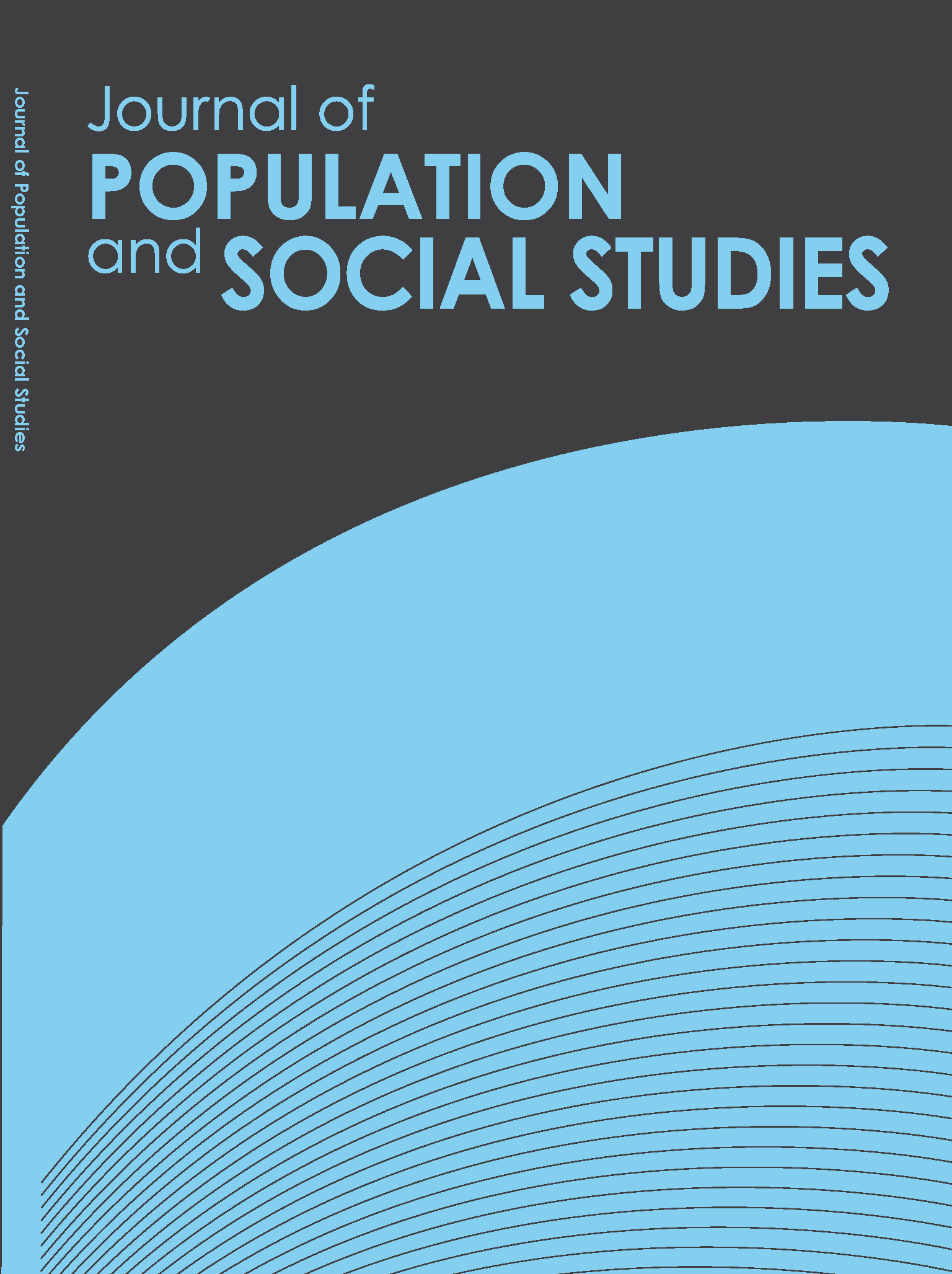Does Living Apart from Parents or School Enrollment Matter to Adolescents’ Mental Health Risk?
Main Article Content
Abstract
The objective of this study is to examine the effects of the presence of parents and school enrollment on mental health among youths aged 15 years. The study employs data from a survey on mental health among 5,238 youths aged 15 who applied for an identification card for the first time at district offices of three provinces from the northern and central regions including Bangkok between March 2009 and April 2010. Findings show that youths who are attending school, whether their parents are present or absent from the household, are less likely to have mental health risks than those who are out of school. This implies that schooling is more important for adolescent mental health outcomes than the presence of parents. Hence, educational services need to enhance or convince youth and their families that they should stay in school as long as possible. Moreover, educational services need to find resources to support low-income students so that they are able to remain in school.
Article Details
References
Archavanitkul, K., Kanchanachitra, C., & Im-em, W. (2005) Intimate partner violence and women’s health in Thailand. Institute for Population and Social Research, Salaya: Mahidol University.
Brumrind, D. (1991). Effective parenting during the early adolescent transition. In P.A. Cowan and E.M. Hetherington (Eds.), Family transitions (pp. 111-116). Hillsdale, NJ: Erlbaum.
Coleman, J. S. (1988). Social capital in the creation of human capital. American Journal of Sociology, 94, Suppl.95, S95-120.
Education News Team. (2012, September 6). Mental health department stunned! Accumulated stress [causes] 170 students to commit suicide each year (กรมสุขภาพจิตอึ้ง! นักเรียนเครียดสะสม ฆ่าตัวตายปีละ 170 คน). Thai Rath. Retrieved from http://www.thairath.co.th/content/289132
Furstenberg F. F. Jr., & Hughes, M. E. (1995). Social capital and successful development among at-risk youth. Journal of Marriage and Family, 57(3), 580-592.
Garmezy, N., & Rutter, M. (1983). Stress, coping and development in children. New York: McGraw-Hill.
Gerard, M., & Buehler, C. (2004). Cumulative environmental risk and youth problem behavior. Journal of Marriage and Family, 66(3), 702-720.
Gray, R., Chamratrithirong, A., Pattaravanich, U., & Prasartkul, P. (2013). Happiness among adolescent students in Thailand: Family and non-family factors. Social Indicators Research,110(2), 703-719. http://dx.doi.org/10.1007/s11205-011-9954-y
Jamuang, J. (2004). Student mental health (สุขภาพจิตนักเรียน). Journal of Education, 15(2), 39-48.
Limsuwan, N. Suicide among children and youths (การฆ่าตัวตายในเด็กและวัยรุ่น) [PowerPoint slides]. Retrieved from https://www.suicidethai.com/download/11june2552/present.pdf


